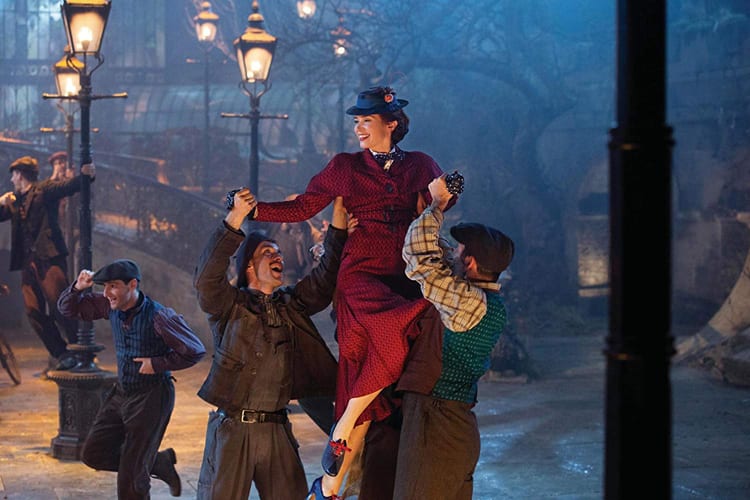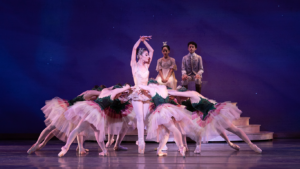Disney has not been kind to P. L. Travers. The writer once said that sorrow lies behind everything she’s written, which holds true for her “Mary Poppins” novels. Disney’s 1964 adaptation chose to focus on the joys of a magical nanny fixing a family—songs and all—but Travers’ books were more dour affairs. In 1913, at only seven years old, Travers and her two younger sisters were orphaned after their father died and their mother attempted suicide. In the throes of destitution, she began making up stories to entertain her sisters, and thus Mary Poppins was born.
Travers’ novels about the nanny were intimately concerned with poverty and mortality. The Poppins of literature was a lower-class woman who used whimsy to distract the Banks children from impending financial ruin. She didn’t glide down from heaven; she was slammed against the family’s gate by a violent wind, one that whisked her away with a wild cry when her time was up. Travers wasn’t advocating a spoonful of sugar—her books illuminated the shovelfuls of gravel that were suffocating the working class. This was somewhat lost on Disney’s classic musical, which Travers openly hated. Disney even glossed over her reaction to the movie with 2013’s “Saving Mr. Banks”, which depicted Walt Disney as a warm, kind man trying to overcome Travers’ cold stubbornness.
Well, P. L. Travers is dead now and her family estate gave up the rights to a sequel, so we get “Mary Poppins Returns”! While it’s fair to fear that this is another chance for Disney to appropriate Travers’ story, Disney’s “Mary Poppins” has taken on a legacy of its own over the past fifty-some-odd years, and “Returns” is trying to live up to the movie rather than the books. In that endeavor, this sequel is pretty great in almost every way.
The director bringing “Mary Poppins Returns” to life is Rob Marshall, the man behind the legendary musical film “Chicago”, and there couldn’t have been a better filmmaker for the job. Marshall and his team nail everything from set design to choreography: the vision of 1930s London, the stunning dance routines, the vibrant color grading, the all-in performances—every hallmark of a great musical springs to life with aplomb. The songs, written by Marc Shaiman of “Hairspray” fame, are eminently enjoyable, even if they’re not destined to be eternal earworms like the tunes of the original “Poppins”.
But that’s okay. “Mary Poppins Returns” is a sequel to “Mary Poppins”, not a remake—Jane and Michael Banks are adults now and one has kids of their own. Their family problems have matured along with them. The trouble they find themselves in is familiar, but “Returns” uses its simple story to launch into the greatest advantage it has over its predecessor: technological advancements. The visual effects of “Mary Poppins Returns” are delightfully immersive. Best of all is the hand-drawn animation sequence, which is simultaneously nostalgic and new. It’s nothing short of extraordinary. Both the music and the visuals contain references to the original, though the amount of homage is occasionally overdone, to the point that “Returns” feels like a cover song.
Emily Blunt, taking up Julie Andrews’ mantle, is immaculate. She offers a flawless replication of Andrews’ mannerisms and cadence. Ben Whishaw and Julie Walters, who previously appeared in the same London family in “Paddington” and its sequel, brighten up the Banks household as well. The illustrious Lin-Manuel Miranda—talented as he is—doesn’t seem to have learned from Dick Van Dyke’s awful accent in the original.
With all these talented filmmakers and performers involved, of course “Mary Poppins Returns” is a ton of fun. And yet, circling back, it’s hard to forget P. L. Travers. This sequel is another tale of privileged Londoners whose problems are magically solved. Travers’ voice, so desperately trying to convey the experience of being poor and disadvantaged, has been further sanitized by the Disney machine. As great of a musical as “Mary Poppins Returns” is, you can still feel the tremor of Travers rolling over in her grave. Hitting all the perfect notes can’t drown that out.
★★★★ (4/5)




